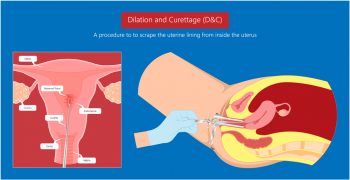What is a missed miscarriage? A missed miscarriage, also known as a silent miscarriage or delayed miscarriage, is a heartbreaking and often unexpected event that can leave couples feeling confused and devastated. Understanding the causes, symptoms, and treatment options for a missed miscarriage can help provide clarity and support during this difficult time.
In this article, we will explore the topic of missed miscarriages using information from reputable sources and medical journals, and discuss steps to take if you suspect one has occurred.
What is a missed miscarriage?
A missed miscarriage occurs when a fetus stops developing but is not expelled from the uterus, leaving no outward signs of pregnancy loss. This type of miscarriage can go unnoticed for weeks or even months until it is discovered during a routine prenatal checkup. Missed miscarriages account for approximately 1% of all miscarriages, but the actual number may be higher due to underreporting.

Causes of missed miscarriages
While the exact cause of a missed miscarriage is often unknown, several factors can contribute to this type of pregnancy loss:
Chromosomal abnormalities
In many cases, missed miscarriages are caused by chromosomal abnormalities within the developing fetus. These abnormalities can prevent the embryo from developing properly, ultimately leading to pregnancy loss.

Uterine abnormalities
Issues with the shape or structure of the uterus can interfere with the proper implantation and development of the embryo, potentially resulting in a missed miscarriage.
Infections
Some infections, particularly those affecting the placenta, can contribute to a missed miscarriage by compromising the fetus’s supply of oxygen and nutrients.
Maternal health conditions
Certain maternal health conditions, such as uncontrolled diabetes, thyroid disorders, or autoimmune diseases, can increase the risk of a missed miscarriage.

Symptoms of a missed miscarriage
A missed miscarriage often has no noticeable symptoms, which is why it can go undetected for an extended period. However, some women may experience symptoms such as:
- A decrease in pregnancy symptoms, like morning sickness or breast tenderness
- Mild cramping or lower back pain
- Brown or pink vaginal discharge
It is important to note that these symptoms can also occur in normal pregnancies and do not necessarily indicate a miscarriage. If you are concerned about your pregnancy, consult with your healthcare provider.
Treatment options for missed miscarriages
Once a missed miscarriage has been diagnosed, there are several treatment options available:
Expectant management
Some women may choose to wait and allow the body to expel the fetal tissue naturally. This process can take several weeks but may be a preferred option for those who wish to avoid medical intervention.
Medication
In some cases, medication may be prescribed to help the body expel the fetal tissue. This option can be less invasive than surgery and may be suitable for women who prefer not to wait for natural expulsion.
Surgical intervention
Surgical intervention, such as a dilation and curettage (D&C) or dilation and evacuation (D&E), may be recommended to remove the fetal tissue from the uterus. This option is often chosen for women who are experiencing heavy bleeding or have a high risk of infection.

What to do if you suspect a missed miscarriage
If you think you may have experienced a missed miscarriage, it is essential to schedule an appointment with your healthcare provider as soon as possible. They will perform an ultrasound to assess the status of your pregnancy and discuss your options moving forward.
In conclusion, while missed miscarriages can be a heartbreaking experience, understanding the causes, symptoms, and treatment options can help provide support and guidance during this difficult time.
It is essential to reach out to your healthcare provider if you have concerns about your pregnancy and to seek emotional support from friends, family, or professional counselors if needed.


